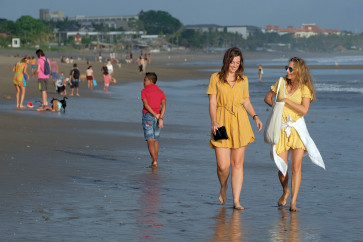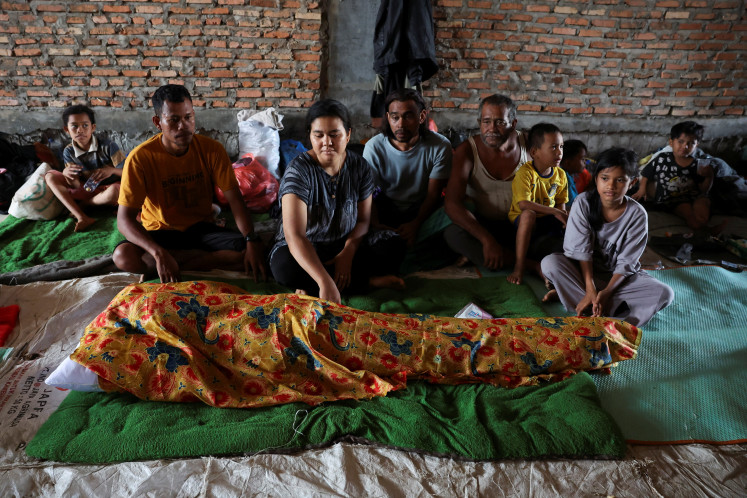Popular Reads
Top Results
Can't find what you're looking for?
View all search resultsPopular Reads
Top Results
Can't find what you're looking for?
View all search resultsBrothels push HIV/AIDS check-up for sex workers
In the early hours of Sunday morning, Ni Wayan Eka scanned the street for potential clients out the front of her brothel in Carik
Change text size
Gift Premium Articles
to Anyone
I
n the early hours of Sunday morning, Ni Wayan Eka scanned the street for potential clients out the front of her brothel in Carik. While the previous night had been busy and profitable, the brothel was enduring both a lull in clients typical with the business low season and a significant growth in competition within Denpasar's sex industry. Despite having five rooms at her institution, Eka rarely fills more than two per night.
"Competition is on the rise. These girls could easily earn a living outside this brothel on the street."
"Even more, customers are likely to *play' outside the complex. It's easy for these girls to find their own clients because they have mobile phones."
Eka is one of nearly 30 pimps operating a business in Carik, a market which oversees 200 prostitutes from outside Bali. A local Balinese businessperson owns the whole prostitution ring, charging Rp 25,000 (US$2.5) per day plus other monthly fees for pimps to work in the area.
"Now, I'm starting to feel the pain of meeting these fees and charges," said Eka, who was raised in the same low-cost housing she lives in now.
Besides supervising her business, Eka also assists a foundation with managing HIV/AIDS among sex workers by gathering the girls once per week for a straightforward medical check-up.
The routine check-up, which includes a test for HIV/AIDS, has been approved by all the bosses in charge of the sex-industry businesses in Carik.
"We faced significant challenges getting the girls to actually go to the check-up and HIV/AIDS test, particularly because we were finding it difficult to track down customers and business. So we asked the bosses to use their influence in overseeing this activity," said Eka.
Around 34 prostitutes in Carik are infected with HIV/AIDS, Eka said, but they still work and engage in sexual relationships.
"If they are exiled by their friends and co-workers *for having HIV/AIDS* they could leave this brothel and work in another place. This is very dangerous."
Since the start of this year, the Indonesian Commission on AIDS (KPA) has focused on the heterosexual and homosexual transmission of HIV/AIDS, particularly through sex workers in the area.
The head of the Bali KPA, Yahya Anshori, said Denpasar has at least 11 official brothels and an unknown number of makeshift businesses.
"For the past seven years, the number has significantly increased. In 2008, we found 18 percent of the sex workers had HIV/AIDS out of 600 surveyed."
As of February, more than 1,675 people were living with HIV/AIDS in Bali, 63 percent of which were transmitted via heterosexual relationships.
Projections suggest Bali will be home to nearly 9,000 prostitutes, servicing around 88,500 clients, by 2010. From these, almost 850 will contract HIV/AIDS.
A brand new competitor had just opened in the neighborhood, Eka said.










